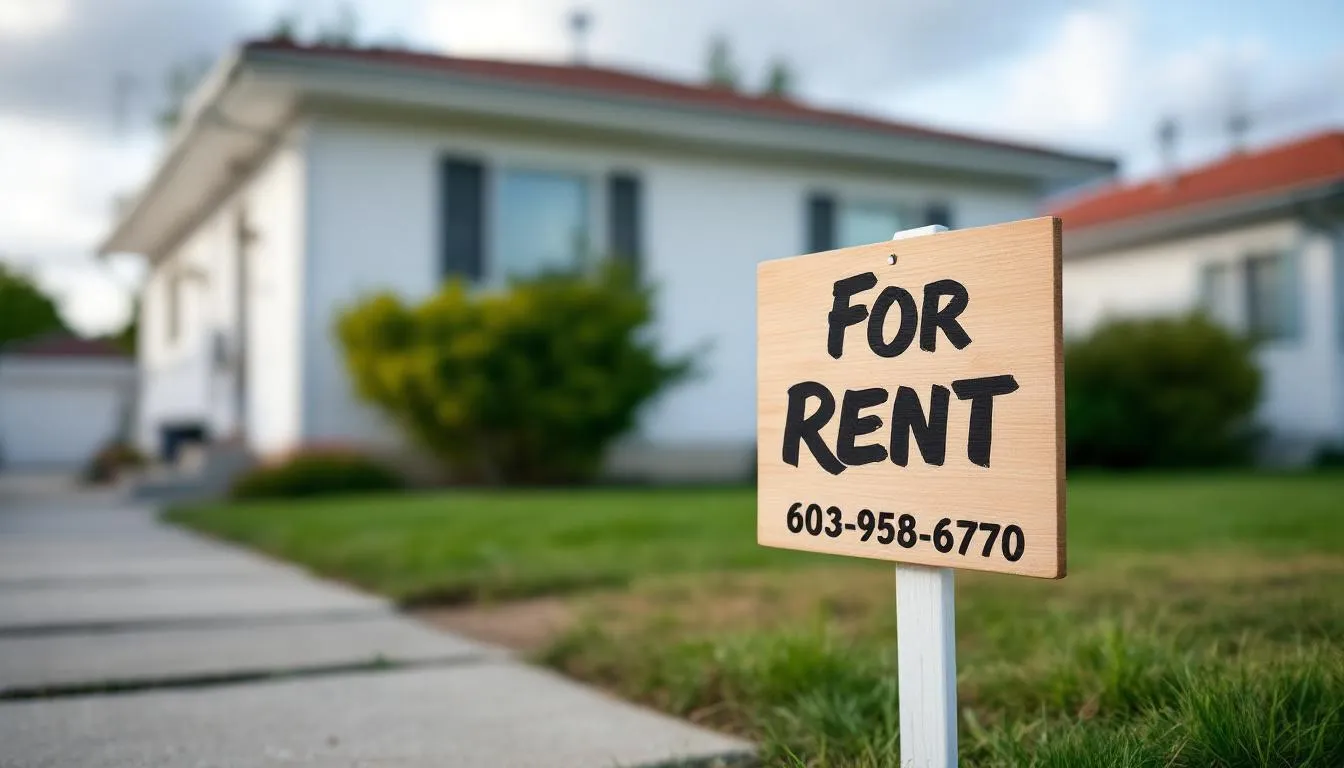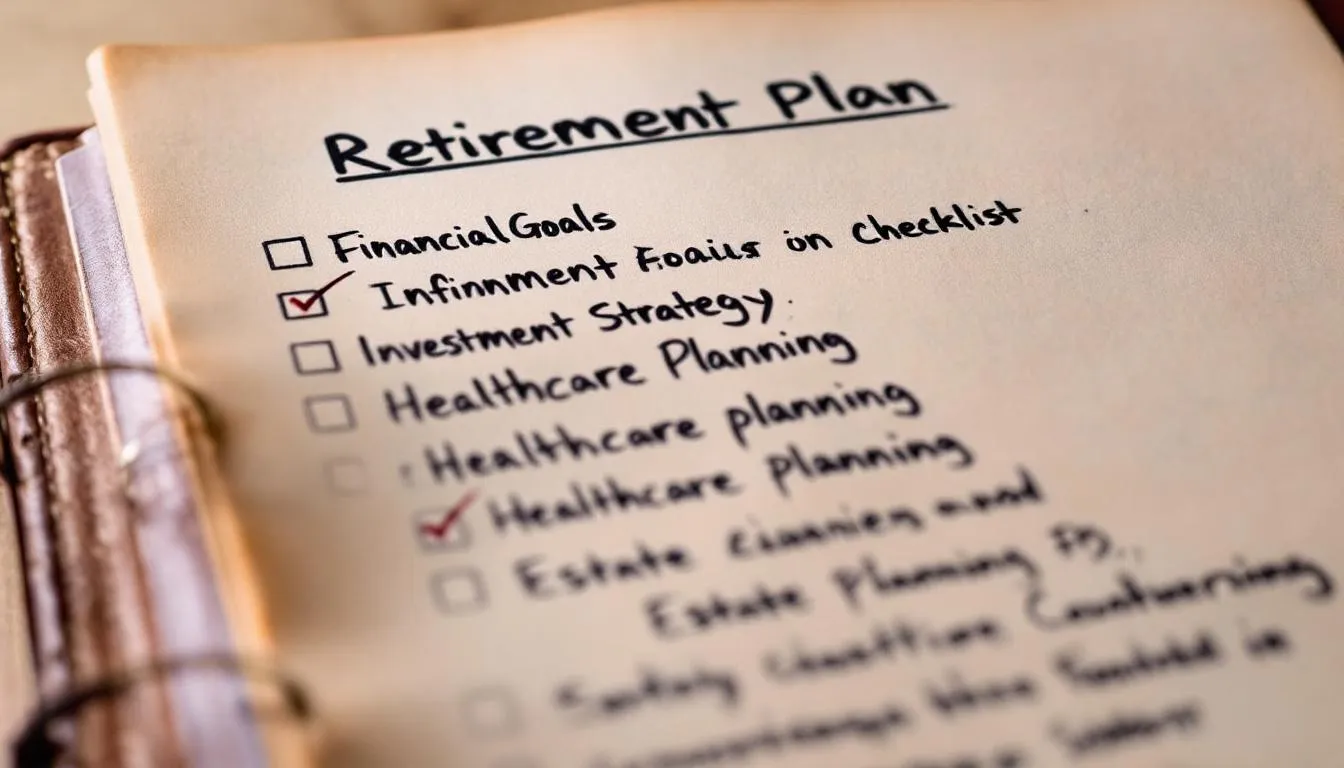- ⚠️ 87% of non-retired Americans are worried about generating enough retirement income.
- 🧓 44% of future retirees plan to claim Social Security early, despite smaller benefits.
- 💰 74% of retirees receive less than 75% of their pre-retirement income.
- 🧾 Nearly 50% of retirees live on less than half their working income.
- 🏠 Real estate in Las Vegas offers predictable rental income to reduce retirement shortfalls.

Retirement Income Worry: Why Americans Are Concerned
Retirement brings both excitement and worry, especially about income. A 2025 survey by Schroders shows 87% of Americans not yet retired worry about having enough money after they stop working. More than half, 53%, fear running out of savings. These numbers point to a big problem in how people prepare for retirement. Economic changes, rising prices, and doubts about Social Security make this problem worse.

Early Social Security Claims: Fear Over Stability Makes Choices
For many Americans, Social Security is a main part of their retirement plan. This is true even if they don't fully trust it. But 44% of future retirees plan to claim Social Security before full retirement age, which is currently 67. Only 10% will wait until age 70. Research clearly shows that waiting to claim Social Security means much higher monthly payments over your lifetime. For example, your benefits go up about 8% each year after full retirement age.
So why are people claiming early?
- 🏦 37% want access to the money as soon as they’re eligible.
- 💬 36% fear Social Security won't be available in the future.
- 🆘 34% simply need the income right now.
Waiting longer means much bigger monthly checks. But most Americans claim early because they need money right away and feel unsure about the future. Trust in Social Security has gone down. This makes people take smaller payments now for peace of mind. They often don't see how much this choice can cost them over 20 or 30 years in retirement.
The Long-Term Cost of Early Claims
If you claim Social Security early, say at age 62, instead of waiting until age 70, your benefit can drop by up to 30%. Someone expecting $2,000 a month at full retirement age could lose $600 a month, or $7,200 a year, by taking benefits early. Over 20 years, that's $144,000 less income. This does not count for inflation.
When people live into their 90s, claiming early can cause big money problems later on. It increases the chance of running out of savings.

The Retirement Income Gap Is Real
There is a big and growing difference between what retirees need and what they have. The Schroders report says retirees need about $5,032 each month to live comfortably. But most people close to retirement don't think they will even get 75% of their last paycheck:
- Only 11% of non-retirees believe they’ll definitely reach that benchmark
- 39% say they “probably” will
- 50% say they “probably not” or “definitely not”
Americans expect to get income from a mix of things:
- 💵 Cash savings (60%)
- 📊 401(k)s or employer-sponsored retirement plans (45%)
- 📈 Investment income (34%)
- 👩❤️👨 Spouse’s retirement accounts (30%)
These sources may seem varied. But they all depend on market conditions, interest rates, and how much people spend. If there are medical emergencies, stock market drops, or inflation, the line between comfort and not having enough gets thin fast.

How Much Retirement Income Are Retirees Actually Getting?
The truth is hard: most retirees find it tough to get enough income, even for small needs. The Schroders survey shows that:
- 74% of retirees earn less than 75% of their pre-retirement salary
- Nearly 50% live on less than 50% of what they used to earn
This is not just about budgeting. It is a problem with the system itself. No pensions, too much reliance on Social Security, higher living costs, and medical bills all make things harder for the typical American retiree.
What's more:
- 62% of current retirees aren’t confident their money will last
- 58% regret not planning more effectively before retiring
When income is lower and costs are uncertain, more than half of U.S. retirees will likely run out of savings. It's not just possible, but probable.

Common Retirement Plans (And Their Limits)
Most plans for getting income in retirement fit into a few common types:
- 🏦 25% rely on systematic withdrawals from retirement or savings accounts
- 🪙 21% use certificates of deposit (CDs)
- 📈 21% invest in dividend-generating mutual funds or individual stocks
These tools can work, but only to a certain point. But each plan has its limits and problems:
1. Systematic Withdrawals
People often use this method with IRAs and 401(k)s. It assumes their spending will stay about the same. But long market drops can eat away at the main amount of money early in retirement. This causes lasting harm, called sequence risk.
2. CDs and Fixed-Income Investments
People usually see these as safe. But they have given very low interest rates in recent years. Even when rates go up a little, they seldom beat inflation. And these plans keep your money tied up for a long time.
3. Dividend Stocks
Dividend stocks are a riskier plan. They can make money without much work, but their value also changes a lot. Companies might cut or stop dividends when the economy is bad. Share values can also drop, which lowers your total worth.
In the end, many of these plans depend on how much you take out and how long you live. These things are hard to know for sure.

Las Vegas Real Estate Can Make Retirement Income Stronger
For Las Vegas residents, real estate is a good choice. It can be an alternative or an addition to common income plans. If you own property or want to buy some, your home or new buys can make steady income.
Las Vegas homeowners use real estate in two main ways to improve their retirement money situation:
1. Downsizing for Equity
Many retirees do not need a big family home anymore. Selling it can free up hundreds of thousands of dollars. This money can then be put into things that make income, or used to pay off debt and lower monthly bills.
2. Rental Income
You can turn your home or a new property into a rental. This takes advantage of the strong demand for rentals in Las Vegas. Monthly rent money can help pay for living costs, health care, or even trips and hobbies in retirement.
Both plans need help from experts who know Las Vegas real estate well. Steve Hawks, a local expert, helps people turn properties into ways to make money for retirement.

Real Estate: A Reliable and Predictable Plan
Unlike stocks, bonds, or annuities, real estate is something that does not disappear as you use it. If managed right, with help from a good team, property income stays steady year after year.
Las Vegas is a good place for this because:
- Rental demand has grown quickly due to population influx and tourism
- Property values have trended upwards long-term, offering equity growth
- Rent prices often grow faster than inflation, so your money buys just as much
Even a small property making $2,000 a month in rent can cover almost 40% of the average retirement income shortage. And while your other investments may shrink over time, a well-kept property can go up in value. This gives you extra money for future needs.

Why Common Savings Might Not Be Enough
It's normal to want to use savings. But that money must last for many decades. Here is the problem: common cash savings accounts usually pay only 0.5% to 2.0% interest. With inflation at 2% to 5% each year, your money slowly buys less.
Imagine starting retirement with $300,000 in savings. If it makes no returns, and you take out $1,500 a month, you will run out of money in 20 years. This does not count for unexpected costs or inflation.
In contrast, a Las Vegas property that brings in $2,000 a month in rent could make $480,000 over those same 20 years. And you would not touch the property itself.

Demand Is Rising for Investments That Make Income
Now, more than ever, Americans want steady choices for retirement. The Schroders survey confirmed 90% of workers want investments that protect against losses and aim for steady returns.
Real estate meets all these needs:
- 🏘️ Generates monthly income
- 📈 Goes up in value over time, unlike bank savings
- 🛡️ More protected from market changes than stocks and bonds
And what's more, it gives you real control. You can fix up, refinance, or sell properties based on what you need at the time. You do not depend on markets that change fast or on how a company does.

What This Means for Las Vegas Retirees
If you are 5 to 10 years from retirement, now is the key time to act. This is especially true in Las Vegas, where real estate is busy and makes money.
Here’s your short-term checklist:
- Assess your likely monthly income gap
- See how home equity or rental properties could add to your retirement money
- Talk with a real estate advisor like Steve Hawks to look at chances
- Work with a financial advisor to balance property income with other investments
The earlier you start, the more ability you have to prepare and change direction if needed.

Avoid These Common Retirement Planning Mistakes
Worries about retirement often lead to doing nothing or making bad choices. Here’s what to avoid:
- ❌ Waiting until you're within a year of retiring to start planning
- ❌ Claiming Social Security too early because you’re afraid of missing out
- ❌ Failing to factor in rising healthcare and living costs
- ❌ Ignoring real estate as a serious source of income
Retirement is not just about gathering wealth. It is about turning that wealth into steady income. It is also about not making mistakes that force you to work again later or live a poorer life.

What You Should Do 10 Years Before Retirement
You are at your best for making money in your 50s and early 60s. Here is what to do:
- 🔍 Do a full review of your retirement income.
- 🎯 Set monthly income goals and calculate likely shortfalls
- 💼 Consult both a financial and real estate advisor
- 🏠 Consider selling or converting your Las Vegas home into a rental
- ⏳ Look again at your Social Security plan. Waiting could mean thousands more each year.
Early planning is the way to ease retirement income worry. And it costs nothing compared to being unprepared.

How Steve Hawks Helps Las Vegas Locals Build Income Through Real Estate
Steve Hawks has helped over 4,000 families. He is a trusted person in Las Vegas real estate, especially for retirement income plans.
Here is what Steve offers:
- 🎯 Advice on picking properties that make good rental income.
- 💼 Advice on downsizing to free up home equity
- 🛡️ Using real estate well to protect against running out of savings
His team makes sure each client learns about local trends, rental demand, property management, and mortgage refinancing plans. These plans match both short- and long-term retirement goals.
Steve's way of working is not just about making deals. It truly changes things for retirees who want steady cash without using up all their wealth.
It’s Time to Secure Your Retirement Income Plan
The facts are clear: Americans are worried, and for good reason. Social Security's future is not set, and common retirement accounts give uncertain returns. Real estate is a strong and often unused way for anyone worried about running out of savings.
In growing cities like Las Vegas, the right property can give you income, tax benefits, and peace of mind. Do not let worry control your retirement future. Start planning, invest smartly, and make an income you can depend on for many decades.
Citations
Schroders. (2025). U.S. Retirement Survey. Retrieved from https://mybrand.schroders.com/m/10b38e96e94ebf7c/original/2025_Schroders_US_Retirement_Survey_Living-in-Retirement_FINAL.pdf

